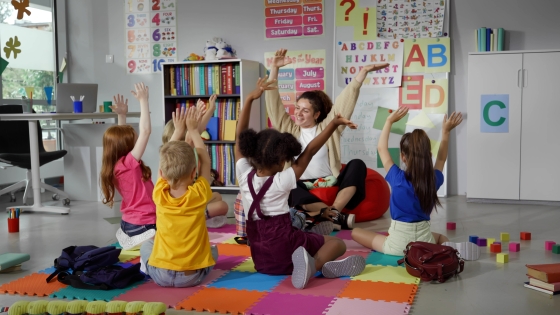
Conference Presentations
Collaborative design of an inclusive education model for students with emotional disabilities: A research-practice-policy partnership. American Educational Research Association Annual Meeting. April 12, 2024.
Students classified with emotional disabilities (EDs) are disproportionately likely to be in restrictive environments and to experience long-term negative outcomes. In order to deliver on the goal of equitable access to academic, behavioral, and social-emotional resources, a collaborative approach between research and practice is needed. In 2021, New York City Public Schools and New York University created the Path Program, an inclusive, whole-school education model for students at risk for or classified with EDs. Guided by Farrell et al. (2022)’s boundary spanning framework, we outline the partnership’s collaboration structures and resources through an analysis of partnership surveys and present our to program development through an archival analysis of key documents.
Equity in Action: Lessons from Practitioners, Researchers, and Policy Makers. Society for Research on Educational Effectiveness Annual Conference. September 28, 2023.
While educational equity is increasingly recognized by scholarly institutions as an urgent goal for society, there are many active debates that need our collective engagement, including how to define equity, what approaches are most effective for measuring equity, and how to implement and refine interventions that promote equitable processes and outcomes. This session discussed the challenges and solutions involved in embedding equity throughout research and practice by bringing together three active intervention projects (BRIDGE, Path, and Maximize) that span different district contexts, approaches to implementation, and areas of intervention.
Publications
Collaborative Design of an Inclusive Education Model for Students in Need of Emotional and Behavioral Support: A Research-Practice-Community Partnership. School Mental Health. https://doi.org/10.1007/s12310-024-09672-8
Despite the benefits of inclusive education, students with emotional disabilities, who are disproportionately Black, male, and economically marginalized, continue to be placed in segregated education settings more than students with other classifications (OSEP, 2020). In this paper, we described the functioning of our research-practice partnership (RPP) and the structures that support the partnership’s ability to engage in boundary spanning between RPP members, towards the goal of implementing an inclusive education model. We examined survey data from partnership members and network data from partnership meetings to illustrate the formal connections between RPP members. This paper contributes to an understanding of both boundary spanning practices in RPPs and some of the key partnership conditions and structures that support the implementation and adaptation of a challenging initiative in school-based mental health.
Adapting SEL interventions to meet student needs: A research-practice partnership supporting students with emotional disabilities. Social and Emotional Learning: Research, Practice, and Policy. https://doi.org/10.1016/j.sel.2024.100047
Implementing school-based social-emotional learning (SEL) interventions requires consideration of both evidence-based practices as well as contextual fit based on student needs. One key approach to adapting SEL interventions is through research-practice partnerships between researchers, practitioners, and school district leaders. The current paper explores the ways a research-practice partnership supports an inclusive education intervention, called the Path Program, designed to support elementary students with emotional disabilities through both structural elements and evidence-based practices. Using the research-practice exchange in the Path Program to support a continuous improvement approach to adaptation, the Path Program uses a Plan Do Study Act cycle to continually infuse SEL activities with a trauma-informed approach to meet student needs. The paper offers crucial information for SEL interventions on the strengths of leveraging research-practice partnerships for program adaptation as well as implementation.

